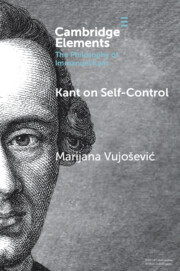Element contents
Kant on Self-Control
Published online by Cambridge University Press: 28 May 2024
Summary
- Type
- Element
- Information
- Online ISBN: 9781108885232Publisher: Cambridge University PressPrint publication: 20 June 2024
References
Primary Sources
Secondary Sources
- 6
- Cited by

